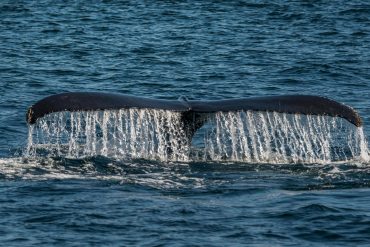When the Queen, who passed away last year, walked into the coronation ceremony at Westminster Abbey nearly 70 years ago, the British Empire was still intact. This was expressed, among other things, in the titles that were used not only as Queen of the United Kingdom, but also as Head of State of several colonies, but also as Head of State of some independent countries such as Canada, Australia, New Zealand, Pakistan. Also identified as , South Africa and Ceylon. Today, when Charles, the heir to the throne, embraces this legacy as king on 6 May, not much remains of the Old World empire’s glory.
However, the position of the great power in the world is not that bad either. While many former colonies no longer want anything to do with the British monarchy and – like Barbados recently – seek their salvation in a republican form of government, the Commonwealth, established in 1931, continues to enjoy great popularity. . The famous confederation of states, led by London, is now home to 56 countries, including countries like Mozambique and Gabon that were never part of the British Empire. This means that 29.4 per cent of the world’s population i.e. about two billion people live in Commonwealth countries.
sports instead of politics
While the Commonwealth’s organization and capabilities are informal and loose and play little role in world politics, it is different in sport. In fact, the Commonwealth Games, with national teams from 72 states, parts of the world and territories, is the world’s third largest multisport event after the Olympics and the Asian Games. Smaller islands such as Guernsey, Niue and the Cook Islands may also participate in this way. In addition to most Olympic disciplines, the sports program also includes some sports that are common only to Commonwealth countries. In 1998, for example, rugby, hockey, cricket, netball, squash and water polo were added to the programme, along with athletics, badminton, bowls (boccia), gymnastics, boxing, cycling, shooting, weightlifting, swimming and wrestling.
The British Empire Games, first held in August 1930 in Hamilton, Canada, are considered the forerunners of the Commonwealth Games. At that time, 11 nations with approximately 400 athletes each were eligible to participate. In fact, the Commonwealth Games were born much earlier – in 1911. The occasion for the athletics event at London’s Crystal Palace, which opened on 12 May under the title “Inter-Empire Championships”, was the formal coronation of King George V. .22 June was at Westminster Abbey in London.
Apart from the United Kingdom, however, only four sub-countries of the British Empire – Canada, New Zealand, Australia, South Africa – were eligible to participate, and only members of the white population group were eligible. Five running events (100, 220, 880 and 1,000 yards and 120 yard hurdles), two swimming events (100, 1,000 yards), heavyweight boxing and wrestling (middleweight) were held. There were also two team competitions. The most famous participants at the time included Stanley Bacon (England), Harold Hardwick (Australia), Malcolm Champion (New Zealand), John Lindsay Tait and George Hodgson (both Canada). Canadian sprinter Frank Halbaus surprised. He won double gold in 100 and 220 yards.
In general, the North Americans performed unexpectedly well at the Inter-Empire Championships and won the nation rankings (without the team events). This drew criticism from the English press, who had expected their team to do better. The “Auckland Star” also suspected that the Empire Games were not worthy of the title, especially since only four countries of the World Empire were allowed to participate apart from Great Britain. The negative reaction and the much-discussed question about the meaning of the Games apparently did not allow the event to be repeated.
next match in melbourne
And so nearly two decades were to pass before the first British Empire Games began in 1930 as a pure sporting event. The success and vibrant attendance at the Games prompted the Council of Representatives of Great Britain and the Dominions and Colonies to organize them every four years between the Olympic Games. The name was changed to the British Empire and Commonwealth Games in 1952, and from 1978 the sporting event was known as the Commonwealth Games. The next Games will be held in Victoria, Australia from March 17 to 29, 2026. Although not directly in honor of King Charles III.
More on wienerzeitung.at comments on this article

Web guru. Amateur thinker. Unapologetic problem solver. Zombie expert. Hipster-friendly travel geek. Social mediaholic.




